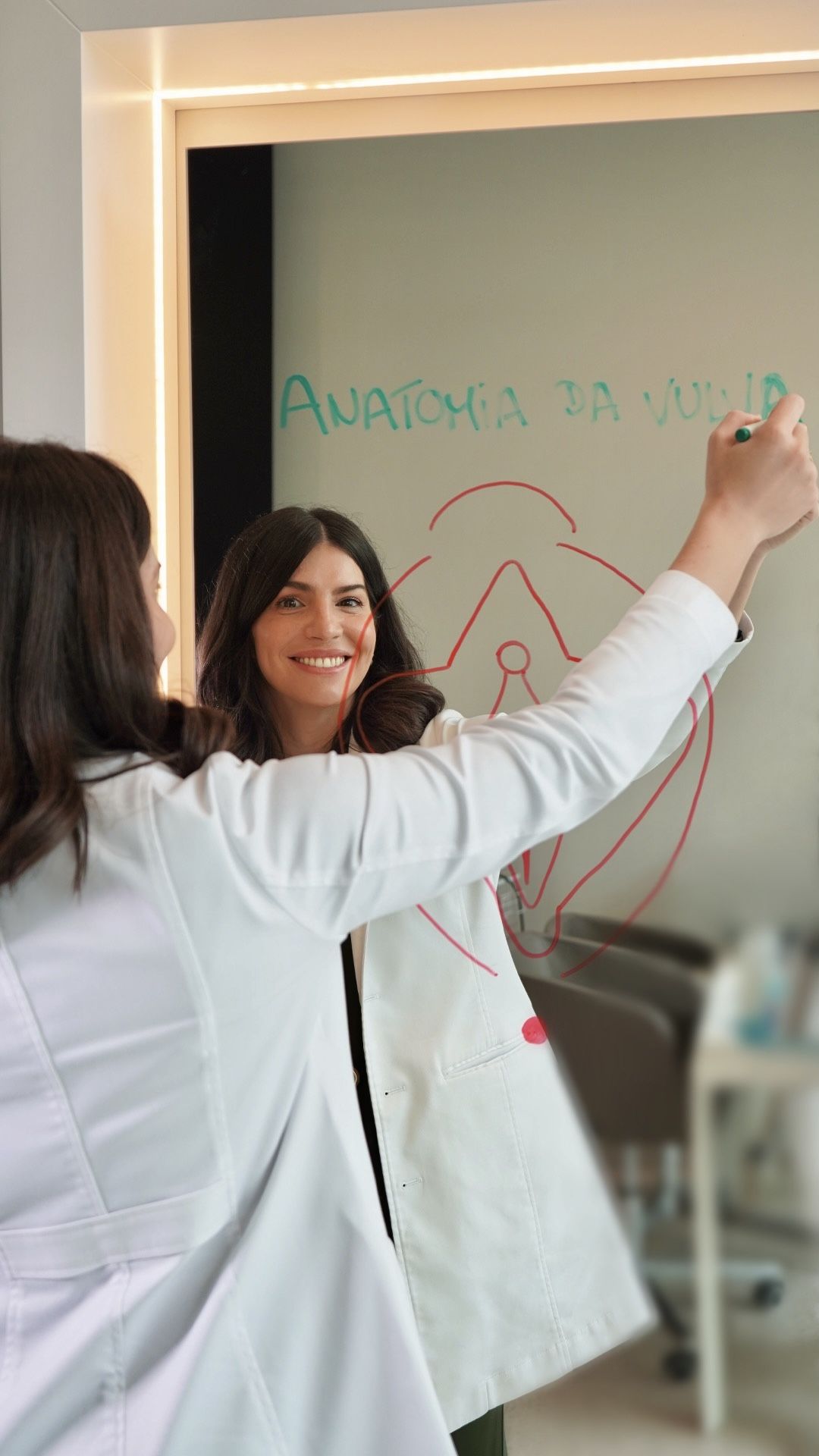She joined Up Clinic in 2023 and her arrival marked the beginning of the clinic’s Regenerative Medicine and Intimate Surgery Unit. Since then, Up Clinic has developed a multidisciplinary team dedicated to different aspects of women’s intimate health.
The Portugal News (TPN): Can you describe what gyno-aesthetic is?
Rita Meireles (RM): “Gyno-aesthetics” is one of the most common terms used to describe this field. In my view, the term goes beyond aesthetics, although the aesthetic aspect is certainly included. It also encompasses functional and regenerative dimensions.
In our practice, we address not only aesthetic concerns but also changes related to lifestyle, medical conditions, and hormonal fluctuations throughout a woman’s life.
For example, younger women often seek treatment for aesthetic issues such as labia minora hypertrophy. We also care for women during pregnancy and postpartum, focusing on pelvic physiotherapy, functional recovery, and perineal rehabilitation.
In perimenopausal and postmenopausal women, when hormonal changes reappear, we see both aesthetic concerns, such as volume loss and laxity of the labia majora, and functional symptoms like vaginal dryness, loss of sensitivity, or pain during intercourse.
In my opinion, the most complete description of this field is not simply “aesthetic,” but functional and regenerative aesthetics, as it encompasses everything we do at the clinic.
TPN: Could you explain the role of regenerative medicine in women’s intimate health?
RM: Throughout a woman’s life, hormonal fluctuations can cause changes in the skin, vaginal mucosa, and the perineal region. Regenerative medicine aims to restore the lost quality, hydration, vascularization, and innervation of these tissues, often using non-surgical approaches.
In other words, the goal is to turn back the clock and recover both form and function, whether after childbirth, perimenopause, or menopause. This is valid, for all aesthetic medicine, plastic surgery and the intimate health. At Up Clinic, we can restore women’s intimate health with minimally invasive techniques, allowing tissues to regenerate naturally and regain their normal function rather than simply repairing them mechanically. This is one of the great advantages of regenerative medicine.
Treatments may include radiofrequency, microneedling, platelet-rich plasma (PRP), and exosomes, all scientifically proven regenerative tools. Many of these methods have already been used safely on the face, neck, and hands, and can now be effectively applied to the intimate area, with fast recovery and excellent results.

TPN: Are the advantages of these treatments only related to sexual life?
RM: No, far beyond that. Although sexual well-being is part of it, the benefits go much further.
Many women experience issues such as urinary incontinence, which is surprisingly common even among younger women, especially after childbirth. Often, they don’t realise that simple, non-surgical solutions exist and they accept these problems as “natural.”
We shouldn’t accept that these women have to live with these complaints and concerns just because they were mothers or because of the natural ageing process. There is a solution for all of them, and the goal is form them to live an active and healthy lifestyle.
Through regenerative and functional treatments, we can often restore pelvic and vaginal function without surgery, improving both quality of life and self-confidence.
TPN: Are women becoming more comfortable seeking these treatments?
RM: Absolutely! There’s now much more openness to discussing these topics. Empowering women to talk about their sexual, intimate, and functional well-being allows them to seek help and maintain an active, healthy lifestyle. And that's why I think it's important that we keep talking about this.
It’s fundamental to discuss sexual, physical, and emotional well-being, for both women and men, because these aspects are deeply connected to overall health and quality of life
TPN: What can people do to have an evaluation in Up Clinic?
RM: Patients can contact us via social media, our website, or directly by phone. Our front-desk and coordination teams are well-trained to guide each patient to the appropriate consultation.
The first consultation is usually with me, where I perform a full assessment. Based on that, we create a personalised treatment plan involving our multidisciplinary team, tailored to each woman’s specific needs and goals.
TPN: To whom is this treatment targeted to?
RM: It’s important to emphasise that these concerns affect women of all ages.
We treat women throughout all life stages, sometimes therapeutically, to address existing issues, and sometimes preventively, for example, in the postpartum period, to prevent future pelvic dysfunction.
Each treatment plan is personalised, adapted to the patient’s age, tissue quality, and specific symptoms.
It’s wonderful to see growing awareness and discussion about women’s intimate treatments, not because it’s trendy, but because the results are truly positive. We’ve seen excellent outcomes, both aesthetically and functionally, leading to very high levels of satisfaction among our patients.
I’m confident this field will continue to evolve, offering even greater benefits as more women feel empowered to talk about it.
For more information about all these treatments, visit: https://upclinic.pt/gynecoaesthetics/?lang=en
Dr. Rita Meireles - Plastic Surgeon at Up Clinic















